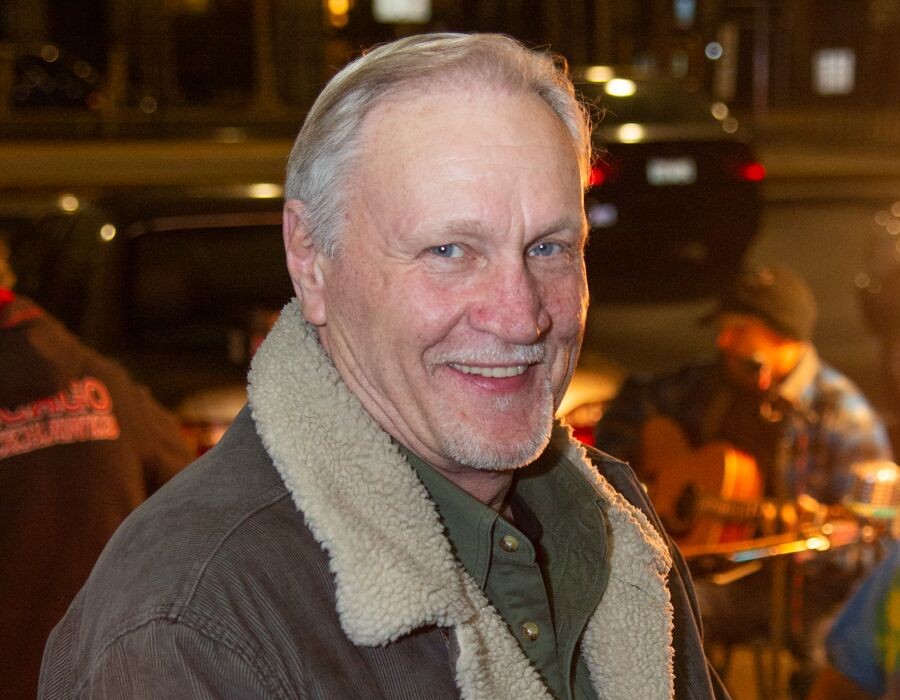Several years back, Tom Schramm was coming to Street Life Ministries’ outdoor gatherings for the free hot meal — not the food for the soul that preceded it. Homeless for 17 years and dealing with substance abuse, Schramm was among the street people fed through the ministry’s meal program which operates in Redwood City, Menlo Park and Palo Alto. Listening to speakers like pastor David Shearin was a preliminary before getting into the chow line.
Today Schramm laughs when he recalls his sarcastic attitude. “I would say quite loudly, ‘And that’s how you control the population,’” meaning not just sitting through a sermon before eating but because of what scripture instructed about how to live. “Being homeless,” he explains, “that’s a freedom you can’t get anywhere, because you’re not living in the guidelines. You could do anything you want. You didn’t have to follow any rules.”
Schramm has done a 180, albeit by degrees and without quite realizing it was happening until it had. Three years after enrolling in the City Team sober living program, his life is focused on recovery –and not just his own. Street Life recently hired him as a part-time outreach worker to the homeless. When the Mountain View resident seeks them out under bridges or in culverts, he meets people he used to live among, often interrupting their drug sessions.
Schramm seems an unlikely candidate for homelessness. He grew up in a good home in San Mateo with loving parents. He was educated at Serra High School, excelled in college and then landed high-paying jobs in the semiconductor industry as a chip designer, programmer and technical writer. But the deaths of his parents a few years apart, along with other issues, were psychological blows. Drugs, he says, allowed him not to feel.
Success at work was never enough. “I tended always to do well and when I got there, I always found that this wasn’t what I expected,” he says. “Where’s the bowl of cherries? It’s never there.” He generally confined his drug use to the weekends. But he had not told one employer that he had a drug problem and was let go when he tested positive. Eventually he ended up homeless, first in San Jose, though he has lived all over the Peninsula, always trying to be out of sight. “My whole goal was to have a place that I wouldn’t have to rebuild somewhere else again.”
One site was in a creek side area off Veterans Boulevard; he also set up an elaborate campsite between U.S. 101 and Oddstad Way. People were astonished at his warm and sheltered digs, which had steps, lighting, and a glass table outside. “I had a bike. I had a bike trailer. I had tree-to-tree carpeting. … It kept all the dirt down. It kept it cleaner, plus it’s easier to sweep all the leaves off the carpet than it is off the dirt.”
Schramm had tried and failed at recovery before, but his arrest in Redwood City in 2017 was a turning point. He could have done 30 days in jail or 90 days in a program, but he knew it was too short and he’d be back on the streets. When he got out of jail, he called Shearin, who asked him if he could handle being in a Christian recovery program for a year. Despite Schramm’s sarcastic catcalling, Shearin says he never gave up on him. “I think you’re better than your circumstances,” he told him. “I said, ‘I think you’re giving up on yourself.’” Schramm went through City Team’s program, but decided to stay another 18 months. Determined not to slip back, he says “staying connected” is critical. He is involved with several churches, and plays in a worship band at Peninsula Bible Church in Palo Alto. He’s the manager for PBC’s sober living home for men called Our Brothers’ Home, and is site manager for Street Life’s meal program in Palo Alto.
Looking back, Schramm, 62, says “I knew I was getting to the point where I have a lot more past than I have future. So how am I going to go out?” He credits Shearin for saving his life. Schramm knows the challenge firsthand getting people out of homelessness. “They don’t know how to,’” he says. “They say they do want to change but they can’t.”
He’s evidence that it can be done. “I’m going to tell you, those dinners started changing me. Over a period of years, it did change me. I didn’t see it until later. Why do you think I’m working for them?
—
UPDATE: The “mystery” in Jim Clifford’s February History column about a street clock at Courthouse Square in downtown Redwood City appears to have been solved. He had asked various officials in the city where the landmark clock came from and how it got installed there but no one knew. City Councilman Ian Bain says he’d heard that the clock used to be on Broadway — near where the Talk of Broadway restaurant is. City forces removed it in 2016 and placed it the current location in 2017.
This story was originally published in the March print edition of Climate Magazine.






